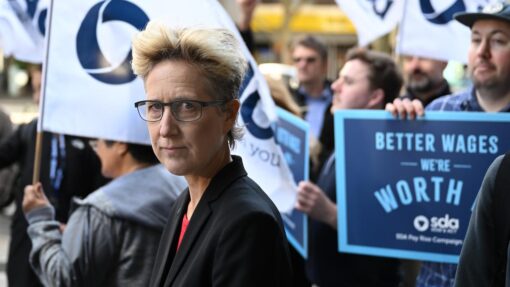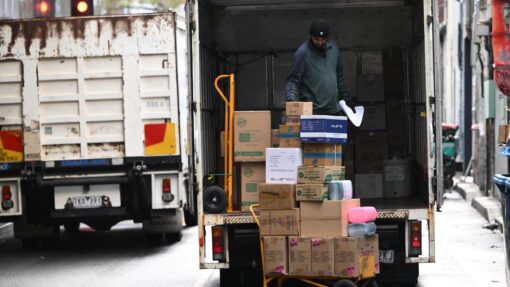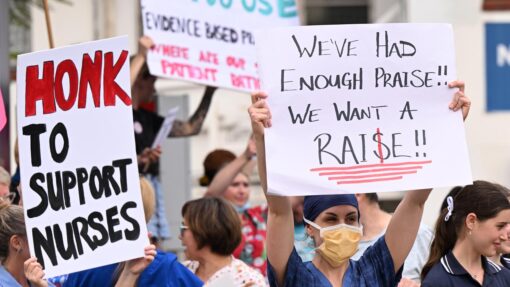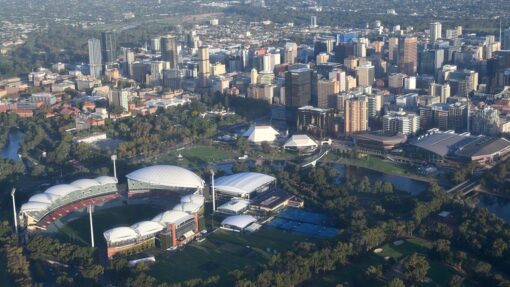Big police pay rise sparks ructions in other wage deals
Luke Costin |

A seismic change to pay for Australia’s biggest police force has caused major ructions among workers in NSW and nationally.
A union-backed pay offer would raise the annual wages of some rank-and-file NSW police officers by $39,000 by 2027, representing an average wage increase of 26 per cent over four years.
The overhaul contrasts starkly with minor pay bumps being offered to other frontline workers including public nurses and federal police.

Australian Federal Police officers are voting on an 11.2 per cent three-year deal.
“This NSW pay deal … only furthers the gap between AFP pay and NSW,” AFP Association president Alex Caruana told AAP on Tuesday.
“We’re the lowest-paid police force in the country.”
With 7000 vacancies nationally, police forces were competing against each other for the same talent, Mr Caruana said.
But he questioned why “anybody in their right mind” would join the federal police – which helped take down pedophile rings, international drug traffickers and terrorists – when they could earn so much more in NSW or Queensland.
“Our members are feeling demoralised … the job is causing harm to them and we’d like some respect being shown to them,” Mr Caruana said.
In Victoria, police are threatening to walk off the job for the first time in more than 20 years as they push for a 24 per cent pay rise over the next four years and shorter shifts.
Union members previously voted against the offer of a 16 per cent increase and a nine-day fortnight.

NSW nurses and midwives are also frustrated their demand for a one-off rise of 15 per cent is falling on deaf ears, taking aim at what they say is unfair treatment of a largely female workforce.
The union is sticking with plans to hold a 24-hour strike from Wednesday morning in defiance of calls from the government and industrial court to cancel it.
Hundreds of surgeries and chemotherapy sessions are expected to be postponed due to the strike.
“The decision to give police more than double the offer for nurses, speaks volumes,” NSW Nurses and Midwives Association general secretary Shaye Candish said.
“The message to NSW women, who make up 86 per cent of our nursing and midwifery workforce, is clear: their hard work is worth less in the eyes of this government.”
Victorian nurses in August won a 28 per cent pay rise over four years in a bid to pare back gender pay disparity.
NSW Treasurer Daniel Mookhey said agreeing to the nurses and midwives’ log of claims, including the pay increase, would make a $6.8 billion dent in the budget.
In comparison, the $698 million needed to cover the four-year police deal would be offset by bringing the force’s insurance policies in-house.
“What this police deal does is demonstrate that reform in the workplace can lead to better pay for our workers and better services for the public,” Mr Mookhey said.
NSW Health Minister Ryan Park said the government was the first in state history to roll out safe staffing ratios and had satisfied other key pre-election demands of the union.
“I will put my record and this government’s record over the past 18 months against anything you lot did in 12 years,” he told the coalition opposition in Question Time.
The nurses union says it has identified $3 billion in lost commonwealth health funding that could help cover its pay demand.
The AFP offer, which is front-loaded, includes several allowance increases including for night shifts and officers with use-of-force qualifications, and increased roster and leave flexibility.
AAP


